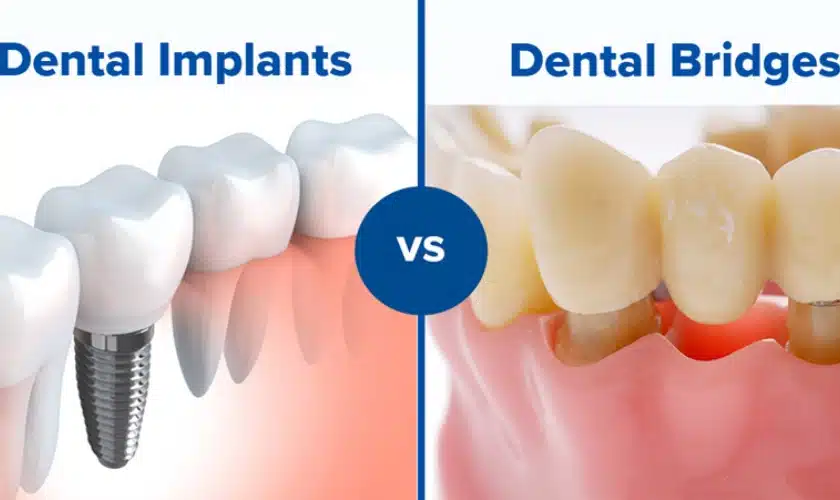The Only Guide for Dental Sense
The Only Guide for Dental Sense
Blog Article
Facts About Dental Sense Revealed
Table of ContentsLittle Known Facts About Dental Sense.Some Known Details About Dental Sense Some Known Incorrect Statements About Dental Sense Getting The Dental Sense To Work
are clinical devices surgically dental implanted right into the jaw to bring back a person's capacity to chew or their look. They offer assistance for artificial (fake) teeth, such as crowns, bridges, or dentures. When a tooth is lost because of injury or condition, a person can experience difficulties such as fast bone loss, defective speech, or adjustments to chewing patterns that result in discomfort.Dental implant systems contain an oral implant body and dental implant abutment and may likewise include a joint fixation screw. Front tooth filling. The oral implant body is operatively placed in the jawbone instead of the tooth's root. The dental implant joint is typically affixed to the dental implant body by the joint addiction screw and prolongs with gums into the mouth to sustain the attached man-made teeth
(https://fliphtml5.com/homepage/hegcy)Structure of The Oral Implant System choosing oral implants, speak to your oral copyright regarding the possible advantages and threats, and whether you are a candidate for the procedure. Things to take into consideration: Your total health and wellness is an important consider identifying whether you are a great prospect for oral implants, exactly how long it will require to recover, and how long the implant might remain in location.
Smoking may affect the healing procedure and decrease the long-lasting success of the dental implant. The recovery process for the dental implant body might take numerous months or longer, during which time you commonly have a short-term joint instead of the tooth. the dental implant treatment: Very carefully follow the dental hygiene guidelines offered to you by your oral company.
Everything about Dental Sense
Implant failure can lead to the need for one more surgery to repair or change the dental implant system. Restores the capacity to chew Recovers aesthetic appearance Aids maintain the jawbone from diminishing because of bone loss Preserves the wellness of the bordering bone and gums Aids maintain nearby (nearby) teeth stable Boosts high quality of life Damages to bordering all-natural teeth during implant placement Injury to the surrounding cells throughout surgical procedure, such as sinus opening Injury during surgical procedure (for example, fracture of surrounding jawbone) Insufficient function, such as feeling like the teeth do not attack with each other typically A feeling that the tooth hangs or turning in location resulting from a joint screw loosening Implant body failing (looseness of the implant body) due to systemic infection, which may be most likely in patients with unchecked diabetes mellitus as a result of neighborhood infection in bone and gum tissues supporting the dental implant body due to postponed healing, which may be most likely in people that smoke Trouble cleansing the periodontals around the implant, leading to bad dental hygiene Untreated gum illness Post-surgical feeling numb due to nerve impingement or damages Always notify health and wellness care suppliers and imaging specialists that you have dental implants before any kind of magnetic resonance imaging (MRI) or x-ray treatments.
FDA is not conscious of any kind of negative events reported for MRI or x-ray procedures with oral implants. Dental implants systems are typically constructed from products that adhere to global consensus criteria of the International Company for Standardization (ISO) or ASTM International. These criteria have information of what makes a risk-free product.

An oral implant is a structure that replaces a missing out on tooth. With screw-like tools, the surgeon inserts an implant right into the jawbone, and it acts as a support for an artificial tooth, called a crown.
The Best Strategy To Use For Dental Sense
Some people are not eligible for dental implant surgical treatment. It is for dental cosmetic surgeons to operate on people with: intense illnessuncontrollable metabolic diseasebone or soft cells illness or infectionIf these problems are dealt with, a person can have the surgical procedure. In, oral specialists abstain from operating people with: If individuals with any of the above go through oral implant surgical procedure, there is a greater danger of the implant stopping working.

Oral implant surgical procedure is a customized procedure. It's not the same for every person. However the adhering to gives a basic review of what you can anticipate your dentist, dental surgeon, periodontist or prosthodontist to do: Place the implant operatively. Provide you time to recover. Attach the post and last crown, bridge or denture.
Next, your specialist will thoroughly place the oral implant right into your jaw. If your dental implant is near the front of your mouth, your dental expert will make a momentary tooth for you to put on till you heal.
The 7-Minute Rule for Dental Sense
During the recovery stage, your jawbone needs to fuse to the oral implant. This procedure can take anywhere from three to nine months.
As soon as your implant heals, your dental practitioner can affix the joint (tiny connector message) and your final restoration (crown, bridge or denture). This generally takes concerning one hour to complete and may call for a 2nd small surgical procedure. You should not really feel any type of discomfort throughout your oral implant treatment since your service provider will make use of drug to numb your gums.
Report this page